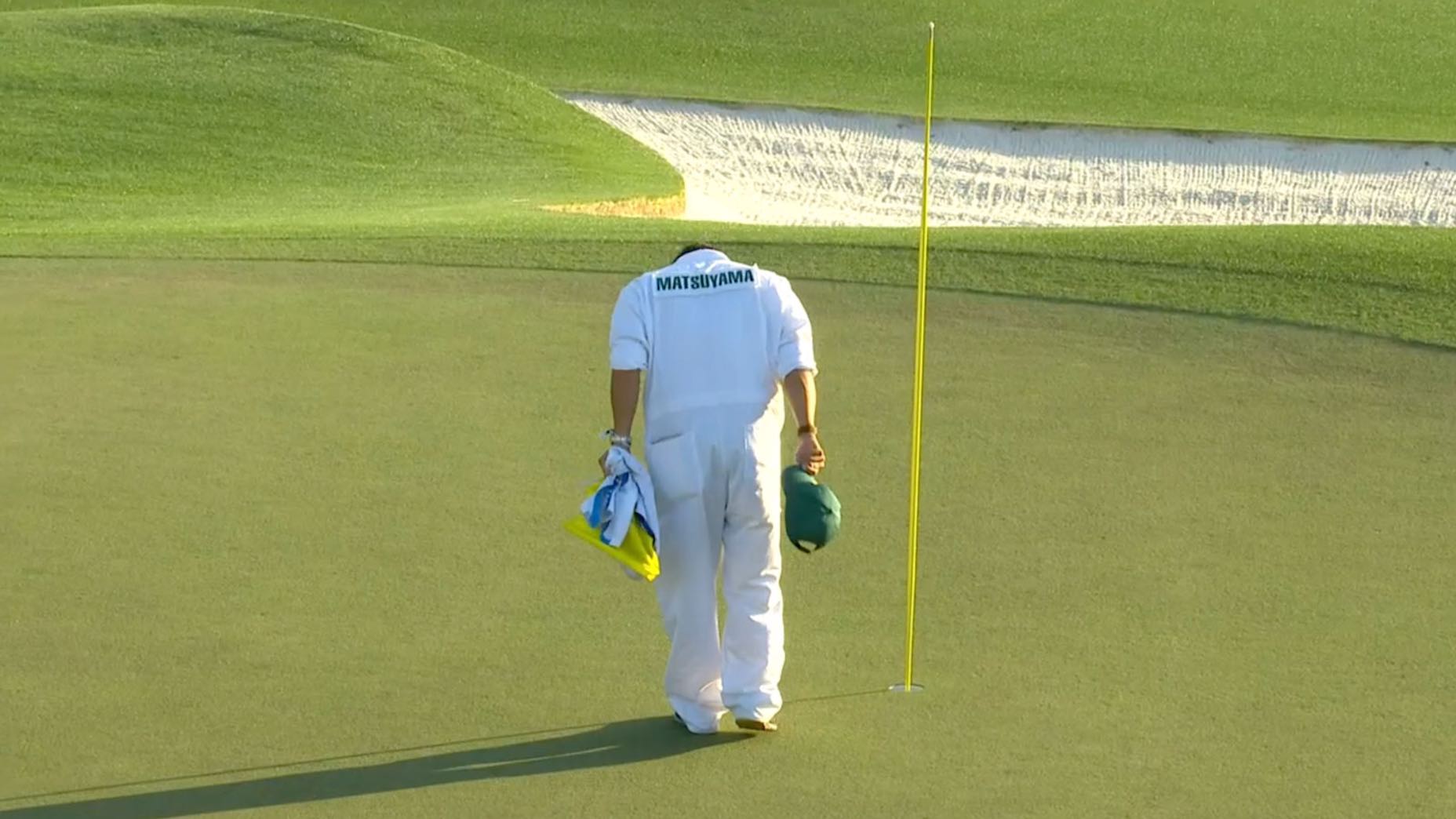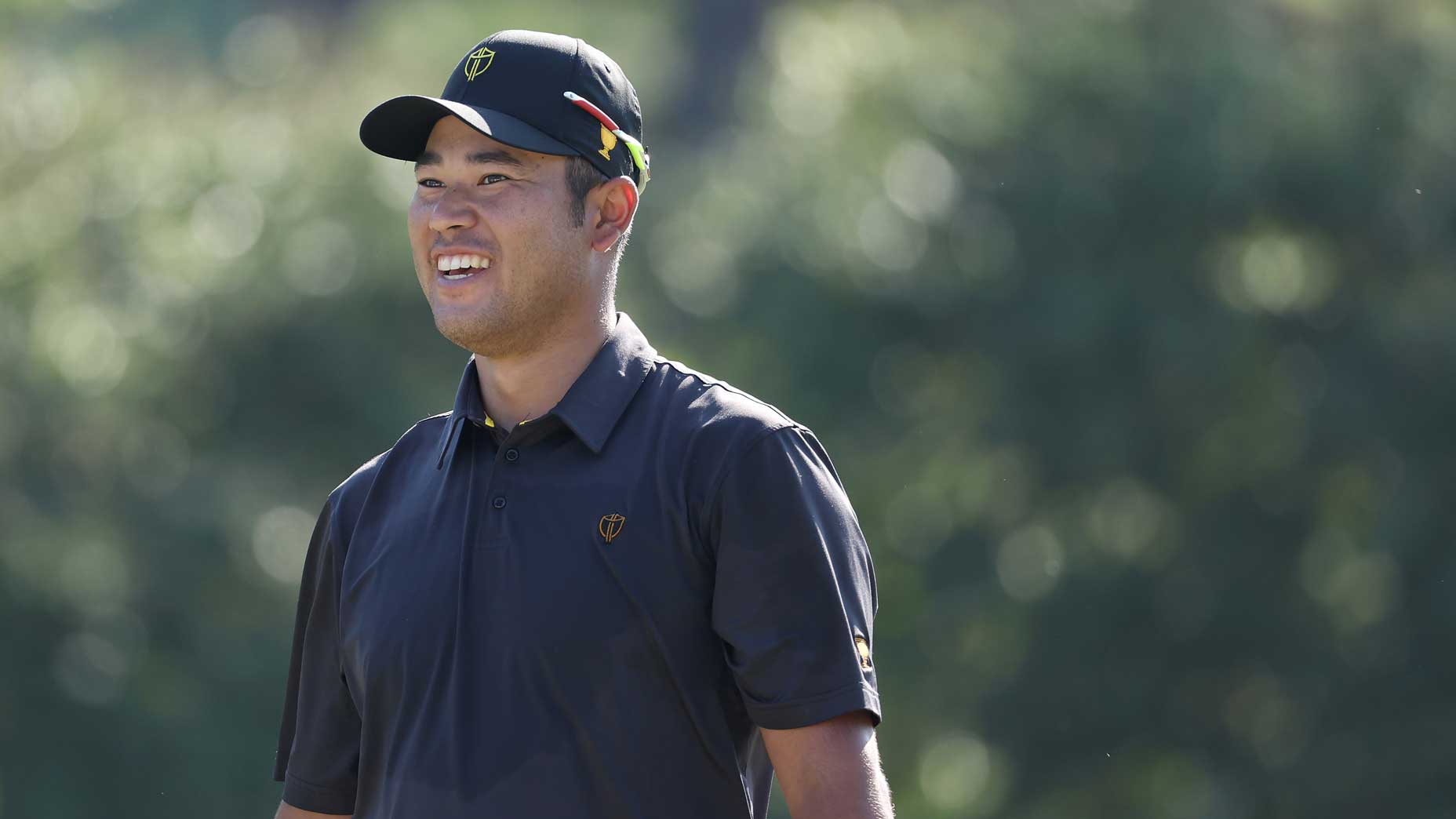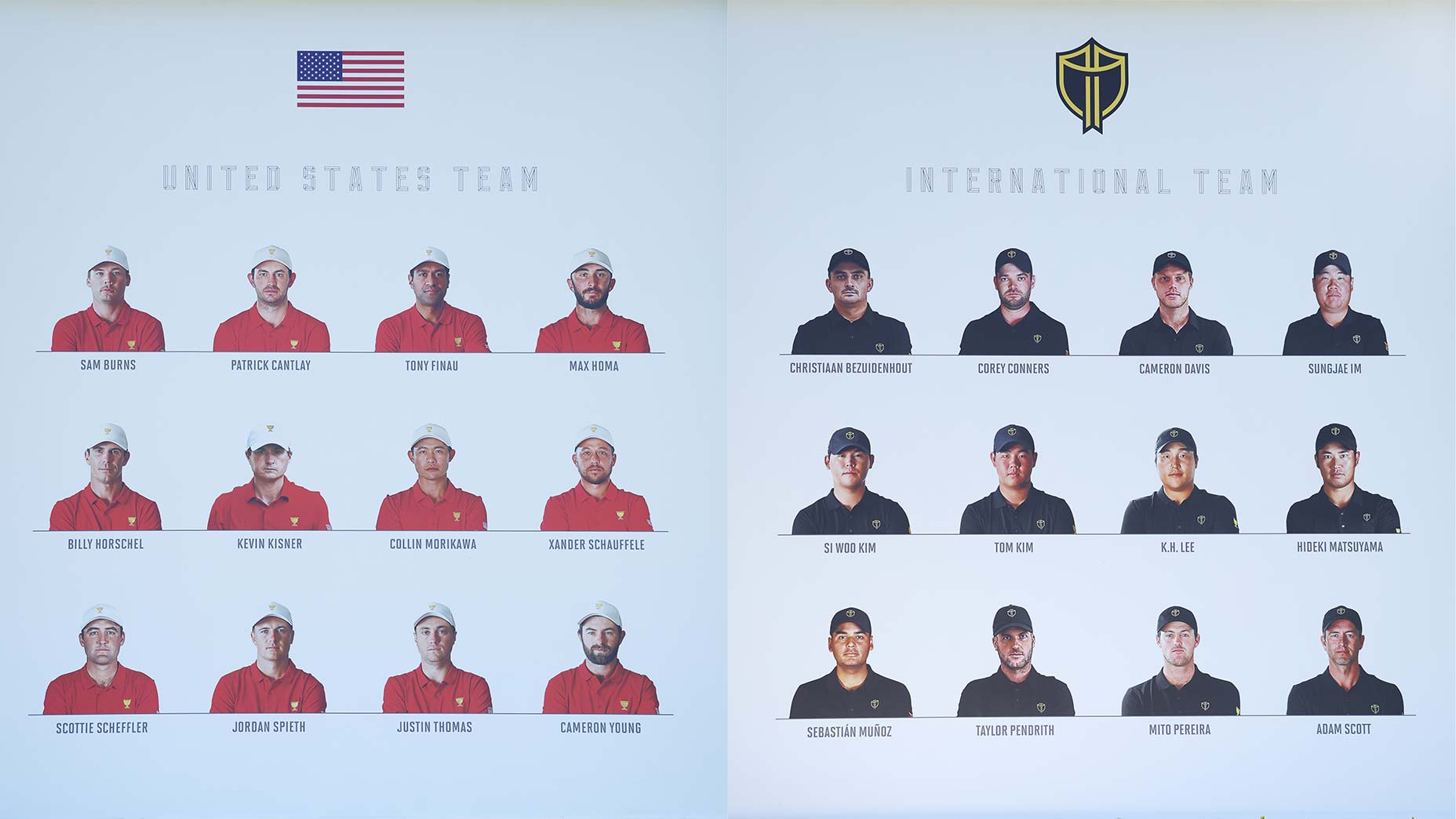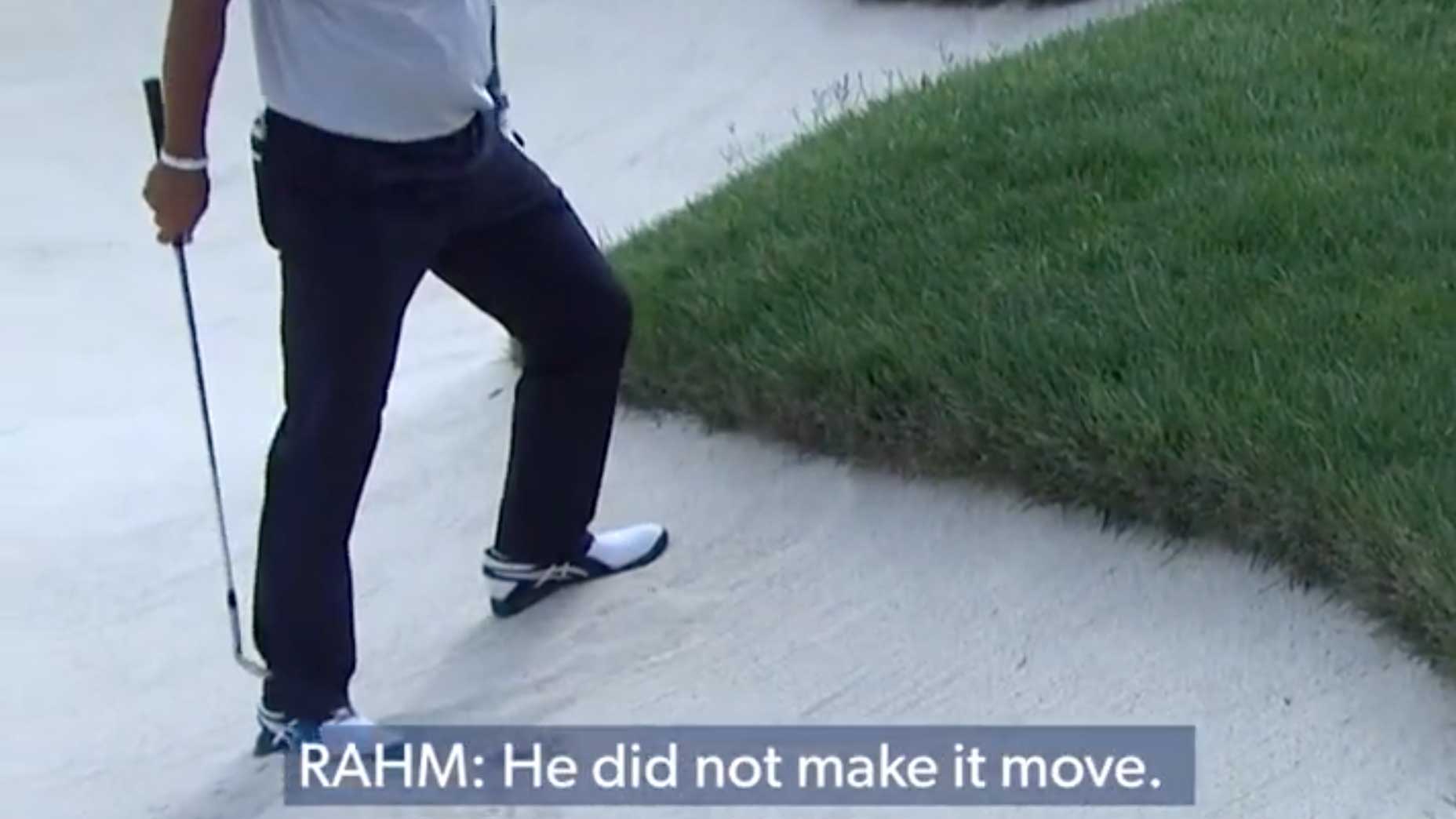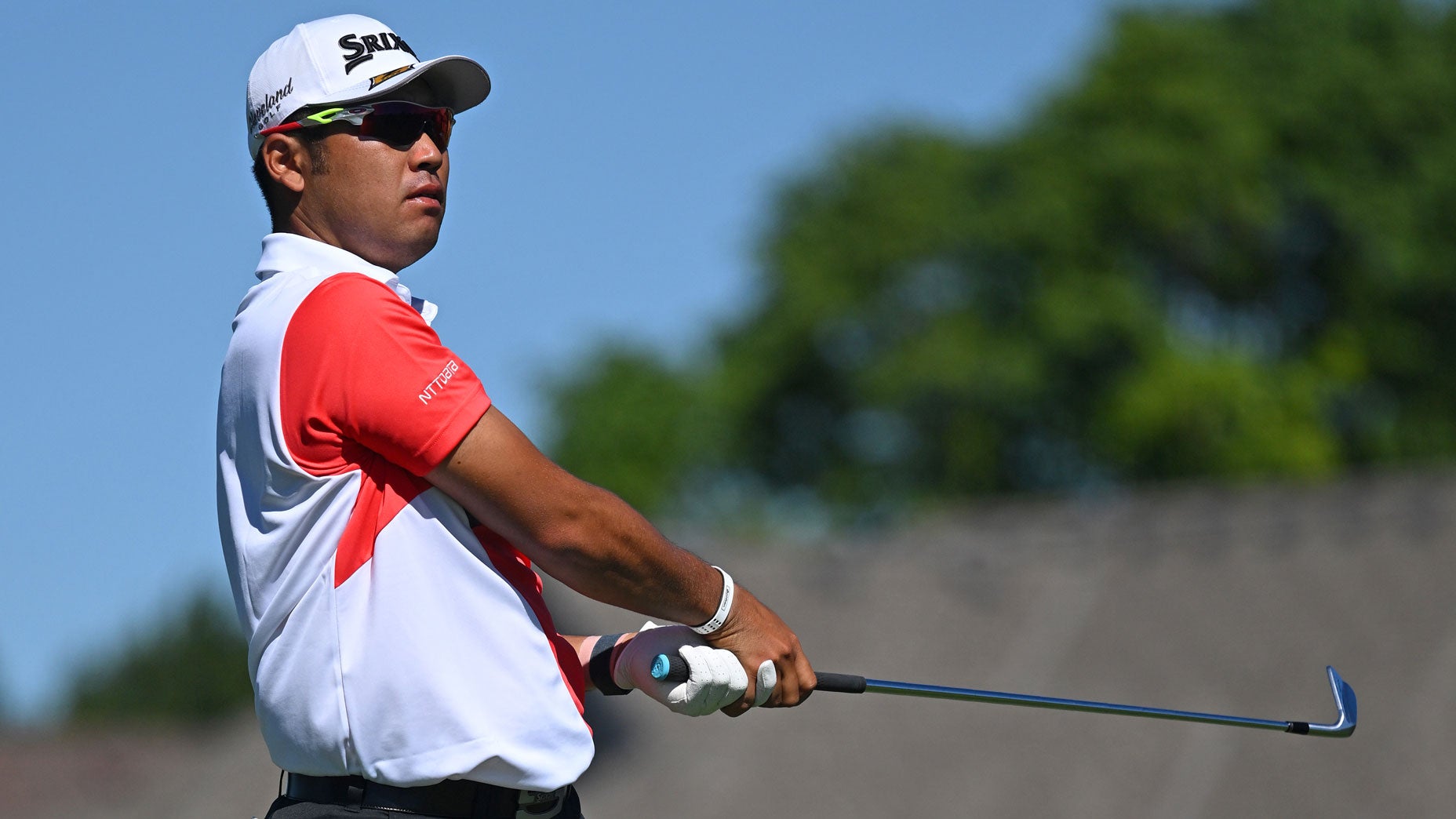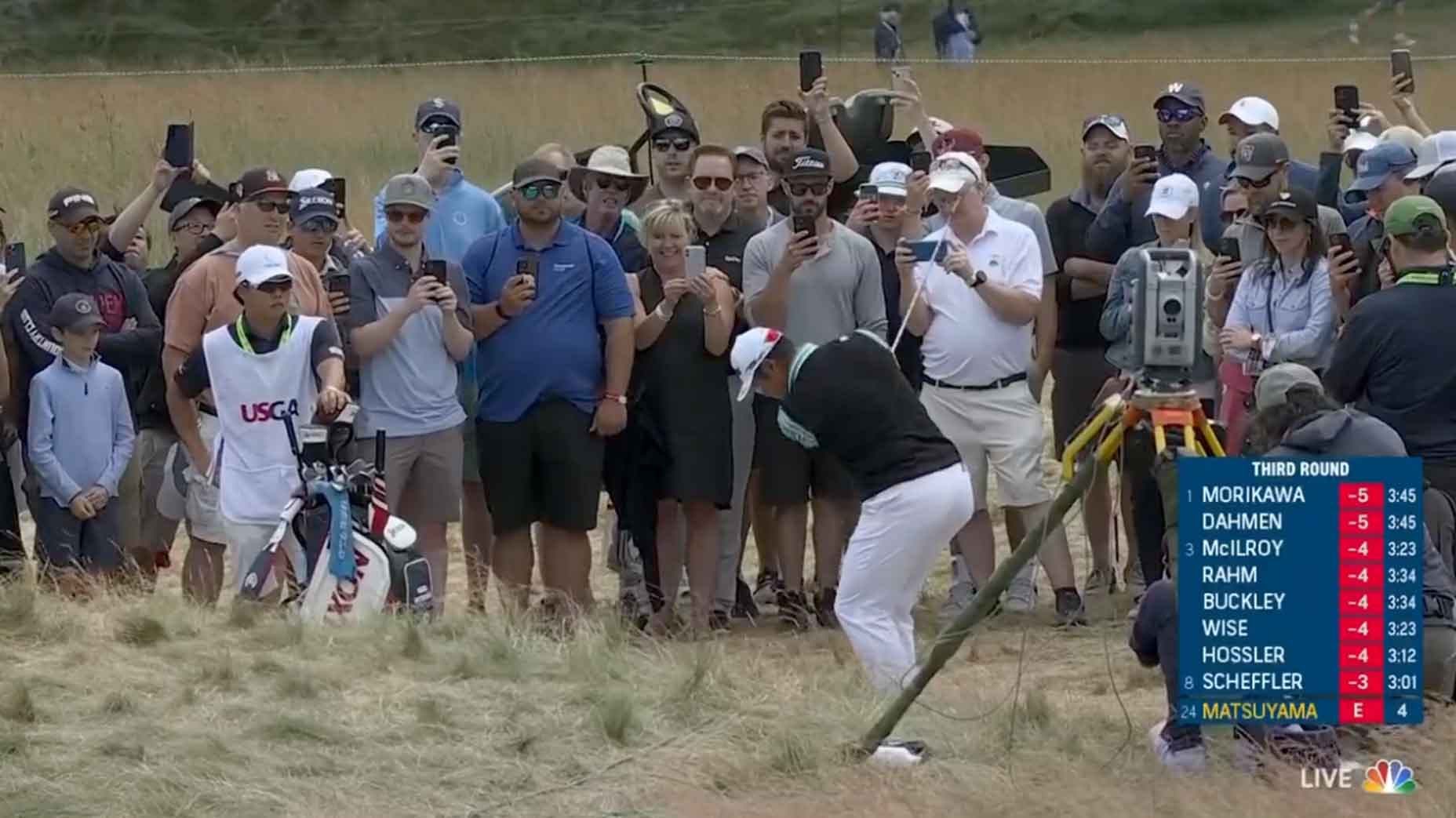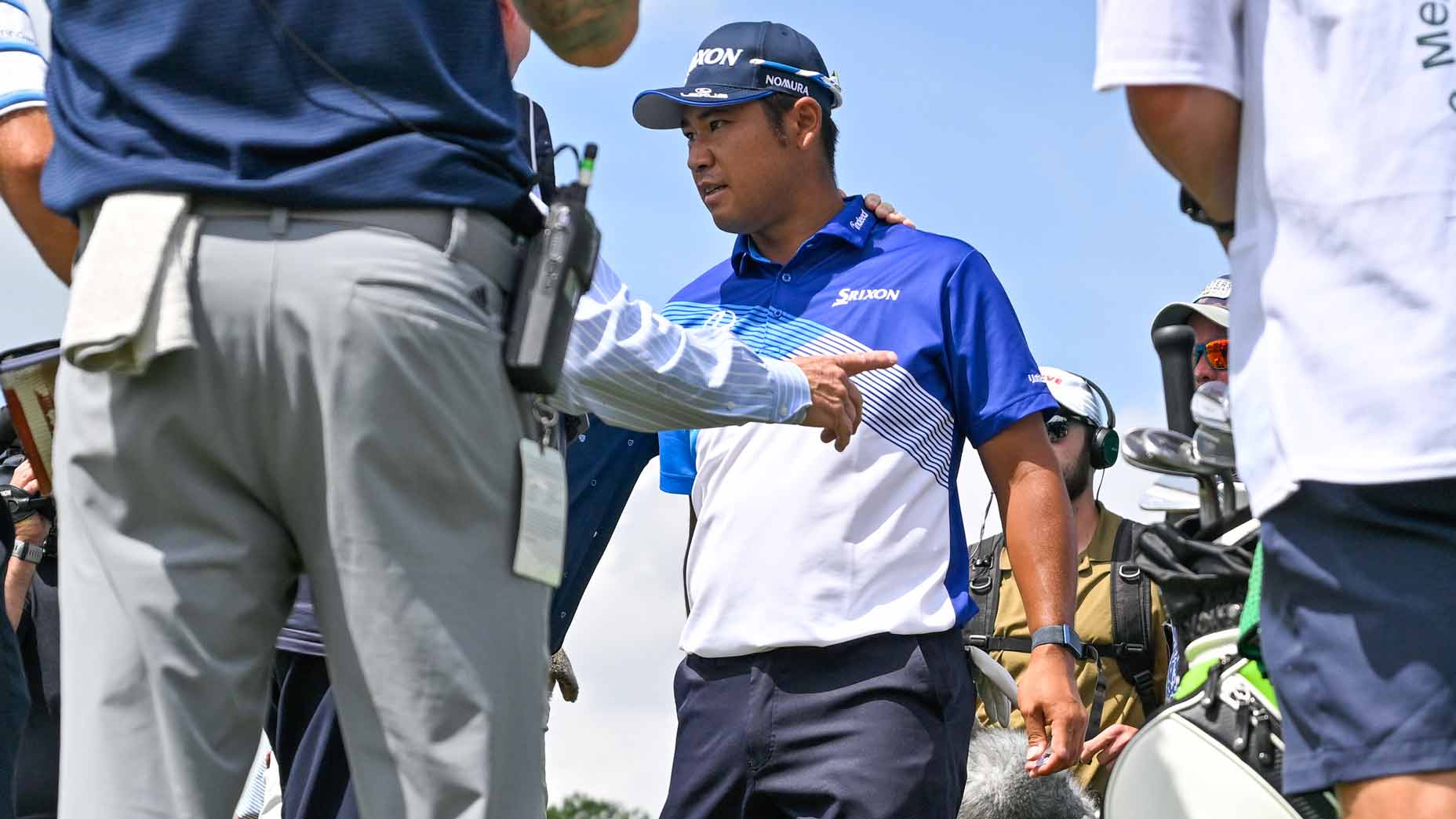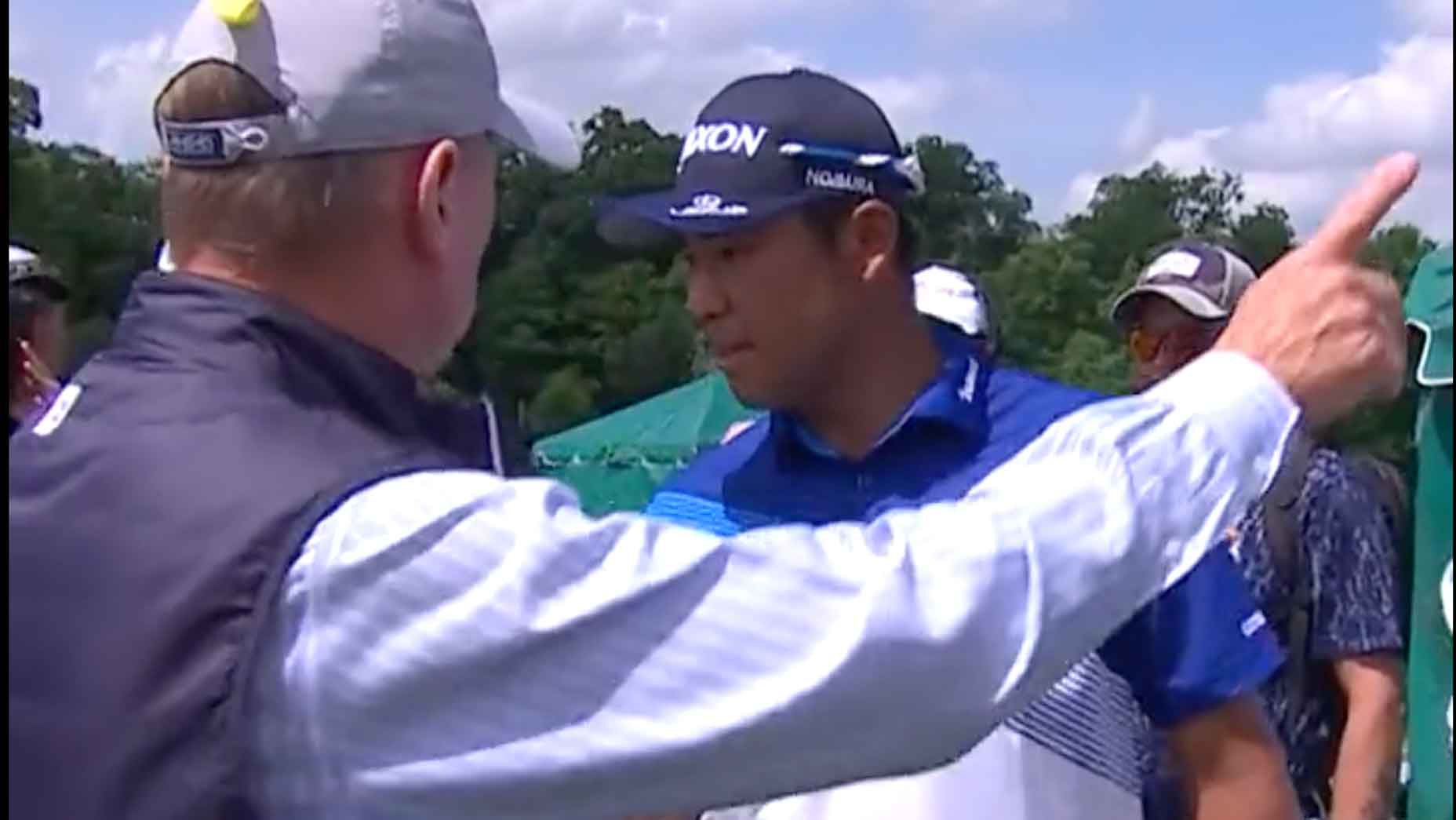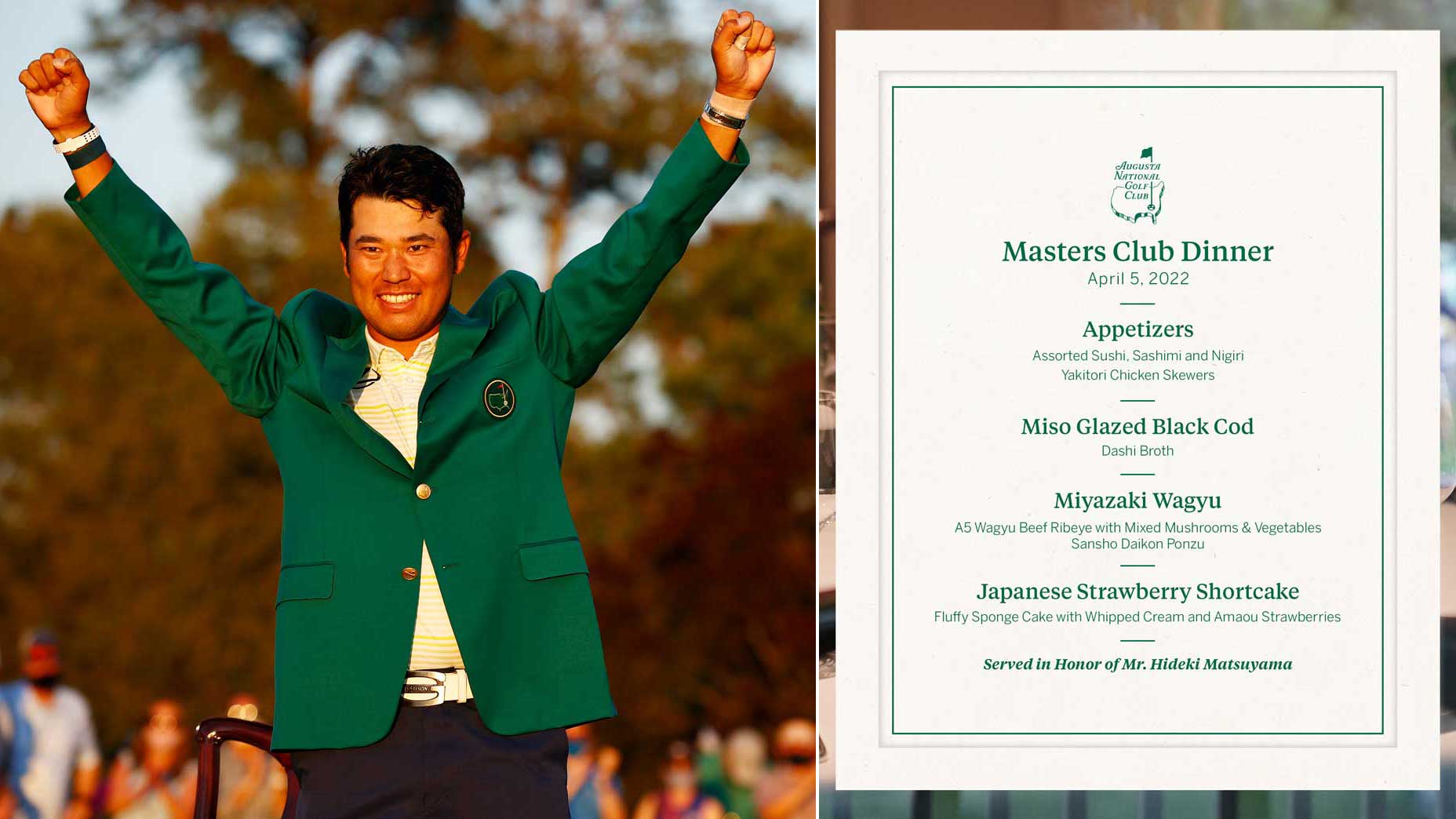When Hideki Matsuyama tapped in his putt to win the Masters, his first thoughts weren’t of jackets, paychecks or trophies. They were of his caddie, Shota Hayafuji.
“When the final putt went in, I really wasn’t thinking of anything,” Matsuyama said. “But then when I saw my caddie, Shota, and hugged him, I was happy for him because this is his first victory on the bag. And then it started sinking in — the joy of being a Masters champion.”
Matsuyama continued up the hill to greet the fans, sign his scorecard, visit Butler Cabin, lift the trophy and inspire golf fans around the world. But the enduring image of the 2021 Masters was arguably what Shota did next: He removed the flag — customary for a winning caddie — and put the pin back in the hole. Then he turned to the course, removed his hat and bowed.
The moment swept across social media. One image from our Sean Zak quickly racked up 100,000 likes on Twitter. Three million more watched the video posted by CBS Sports.
Hideki Matsuyama's caddie, Shota Hayafuji, removing his hat and bowing his head after returning the pin.
— Sean Zak (@Sean_Zak) April 11, 2021
Quite an image. pic.twitter.com/chUVA9XRTF
Reached via message at home in Japan, Hayafuji explained the moment. He doesn’t always bow after a round of golf, he said, nor had he planned to do so. But it felt right.
“I bowed to the course mainly because I was thankful. I wasn’t thinking about doing it and it just happened — like an instinct,” he said.
Others appreciated that instinct. “Love this,” wrote Luke Donald. “Fantastic,” agreed fellow British pro Eddie Pepperell. Golf agent Chubby Chandler praised the sign of respect.
As sports fans, we like it when those in the arena are grateful in big moments. This was gratitude personified. When he got to his phone, Hayafuji started to realize just how far that image had spread.
Following Hideki Matsuyama's Masters win, his caddie, Shota Hayafuji, bowed to the course after returning the pin on the 18th hole. #themasters pic.twitter.com/gdLsWSC0Ac
— ESPN (@espn) April 11, 2021
“I was really surprised that there was such a reaction,” he said. “I was excited, but I was more surprised about it.”
Hayafuji’s favorite moment of the week came behind the 18th green, where he shared a jubilant celebration with members of Team Hideki. It was surreal, he said, but mostly it was joyous.
There was no time for any sort of blowout celebration that evening. Matsuyama had dinner at the club, as the winner traditionally does. The team had packing and organizing to do, after all. The trip home to Japan would be a long one.
On the Monday after the Masters, several people at Hartsfield-Jackson in Atlanta snapped photos of Matsuyama and his team on their way through the airport. In one, the green jacket was draped over a seat beside him. Seeing golf’s most iconic threads displayed so casually endeared Matsuyama to fans the same way his minivan does. (No word yet on whether he’ll upgrade that vehicle.)
Pretty sure this is Hideki Matsuyama’s last moment as one of us (via @BryanPtak) pic.twitter.com/WQCX6sPOD9
— Darren Rovell (@darrenrovell) April 12, 2021
Back home in Japan, Hayafuji says his life in Japan remains the same, albeit with some extra followers on social media. “Nothing has changed because I’m still in quarantine,” he said. But of course, everything has changed.
Hayafuji and Matsuyama initially met during junior high in Japan, where both were aspiring young golfers. Hayafuji pursued a playing career of his own, chasing status around the world. His career included a stint on the China Tour, where his profile still reads, “My favorite golfer is Hideki Matsuyama.”
Hayafuji began caddying for his favorite golfer in late 2018, and a perusal of his Instagram account shows the two have been travel buddies ever since. There’s a post of them wearing matching T-shirts on February 13th, 2019 with the caption “#happyvalentine.” There they are in the Presidents Cup team room. There’s Hideki looking goofy in a hotel room, and there’s Shota playing onto the island green at TPC Sawgrass, and there’s Hideki holding a “29” balloon for his recent birthday. It’s clear these two have more fun than they might let on to the media.
Their relationship, Hayafuji says, is “senior and junior.” He refers to his boss, who is two years older, as “Matsuyama Pro” and is reluctant to spill any details about specific conversations they have.
Browsing Hayafuji’s Instagram also reveals that he didn’t need a Masters win to find gratitude — that’s a theme that’s fully baked in. Nearly every post includes some version of “thank you,” often in Japanese. The most recent post underscores that feeling.
“To be honest I still can’t believe we won the Masters but I appreciate you all for sending me messages.
“I’m really proud that my first victory was the Masters on this dream stage.
“I want to say a lot of thank you for who supported me. And thank you for always being there for me Mr Mitsuteru Iwai-san Mezawa-san Bobsan. Miyanosan. Justin and Hideki.
“Everyone’s thoughts led to this victory.
“I will keep doing my best to win more and more.”
Hayafuji still gets to play once or twice a month, he says — and it’s clear he can still get it around. “My average score is around 70,” he said. But he can go lower. Recently he posted a photo of a round he and Matsuyama played at Orlando-area Bella Collina, where Hayafuji shot 67 from the 7600-yard tees. His boss shot 68 that day.
Big picture, we could all learn something from Hayafuji, about golf and about gratitude. Just don’t expect him to pat himself on the back.
“I like answering these questions,” he said, “but it is pretty difficult, because I don’t speak good English.”
Hayafuji’s post-round gesture transcended language, country and sport. After all, what’s more universal than a bow?
